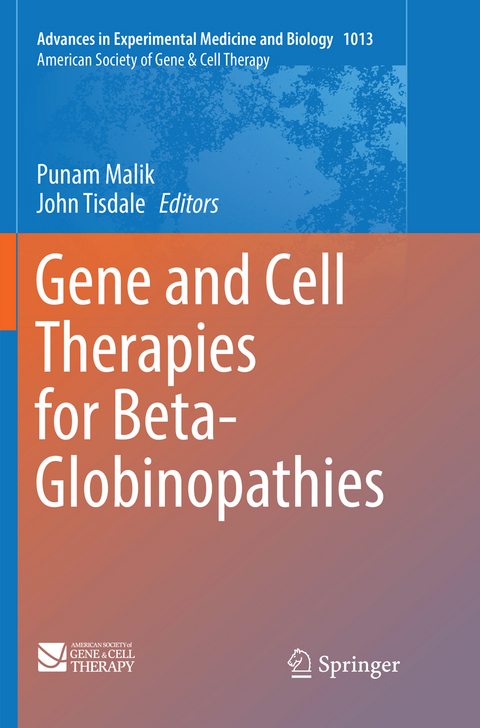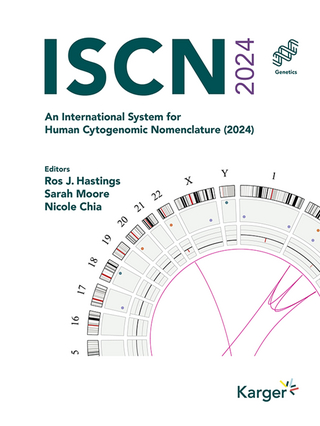
Gene and Cell Therapies for Beta-Globinopathies
Springer-Verlag New York Inc.
978-1-4939-8446-6 (ISBN)
CT is genetic correction of autologous HSCs, to overcome donor availability & immune side effects. This Book reviews the progress made on additive gene therapy approaches & the current state of the field. Finally, targeted genetic correction is emerging as a novel therapeutic strategy in the hemoglobinopathies. Although ideal, the inefficiency of targeted correction was rate limiting for translation of this technology to the clinic. With advancements in zinc finger nucleases and TALE endonuclease mediated targeted correction, correction frequencies in hematopoietic stem cells is now reaching levels that may become clinically relevant. Furthermore, the ability to generate autologous embryonic stem cell like cells from primary somatic cells (skin fibroblasts or hematopoietic cells) of the affected individual has allowed for the potential application of genetic correction strategies.This Book reviews upcoming genetic strategies to reactivate fetal hemoglobin production and research advances.
Punam Malik received her M.D. degree from Lady Hardinge Medical College, University of Delhi, India. She completed a pediatric residency at Kalawati Saran Children;s Hospital, Delhi and at Children’s Hospital Los Angeles, Los Angeles, California, and then then trained in hematology-oncology at Children’s Hospital Los Angeles, where she served as fellow, Assistant Professor from 1999-2005 and a tenured Associate Professor in 2006 at CHLA, University of Southern California. She joined Cincinnati Children’s Hospital Medical Center and the University of Cincinnati in 2007 as the Program Director of the Gene and Cell Therapy Program and in 2008, she became the director of the Translational Core Laboratories at CCHMC. In 2010, she became a Professor of Pediatrics. In 2012, she became the director of the Cincinnati Comprehensive Sickle Cell Center, and in 2014 she became the Marjorie Johnson Endowed Professor of Gene and Cell Therapy. Her group focuses on the pathobiology of sickle cell disease and thalassemia, identifying mechanisms of organ pathologies in sickle cell disease, and developing curative strategies for hemoglobinopathies and other hematopoietic stem cell disorders through transplantation of genetically modified autologous bone marrow stem cells. John Tisdale received his M.D. degree from the Medical University of South Carolina in Charleston. He completed an internal medicine and chief residency at Vanderbilt University Medical Center in Nashville and then trained in hematology in the Hematology Branch, National Heart, Lung and Blood Institute (NHLBI), where he served as a postdoctoral fellow. He joined the Molecular and Clinical Hematology Branch of NHLBI in 1998 and is now the Chief of the Cellular and Molecular Therapeutics Section. His group focuses on developing curative strategies for sickle cell disease through transplantation of allogeneic or genetically modified autologous bone marro w stem cells.
Introduction and clinical features of b -thalassemias and sickle cell disease (SCD).- Genetic basis and genetic modifiers of the b -thalassemias and SCD.- Current Standards of care and long term outcomes of Thalassemia and SCD.- Allogeneic/ matched related transplantation for the b -thalassemias and SCD.- Alternative donor /unrelated donor transplants for the b -thalassemias and SCD.- Gene addition strategies for the b -thalassemias and SCD.- Genetic reactivation of fetal hemoglobin for b -thalassemia and SCD.- Gene correction strategies for the b -thalassemias and SCD.- iPSC gene and cell therapy for the b -thalassemias and SCD.- Future Prospects for Gene and Cell Therapies for Hemoglobinopathies.
| Erscheint lt. Verlag | 28.8.2018 |
|---|---|
| Reihe/Serie | Advances in Experimental Medicine and Biology ; 1013 | American Society of Gene & Cell Therapy |
| Zusatzinfo | 12 Illustrations, color; 4 Illustrations, black and white |
| Verlagsort | New York |
| Sprache | englisch |
| Maße | 155 x 235 mm |
| Themenwelt | Medizin / Pharmazie ► Medizinische Fachgebiete ► Biomedizin |
| Studium ► 2. Studienabschnitt (Klinik) ► Humangenetik | |
| Naturwissenschaften ► Biologie ► Zellbiologie | |
| ISBN-10 | 1-4939-8446-2 / 1493984462 |
| ISBN-13 | 978-1-4939-8446-6 / 9781493984466 |
| Zustand | Neuware |
| Informationen gemäß Produktsicherheitsverordnung (GPSR) | |
| Haben Sie eine Frage zum Produkt? |
aus dem Bereich


